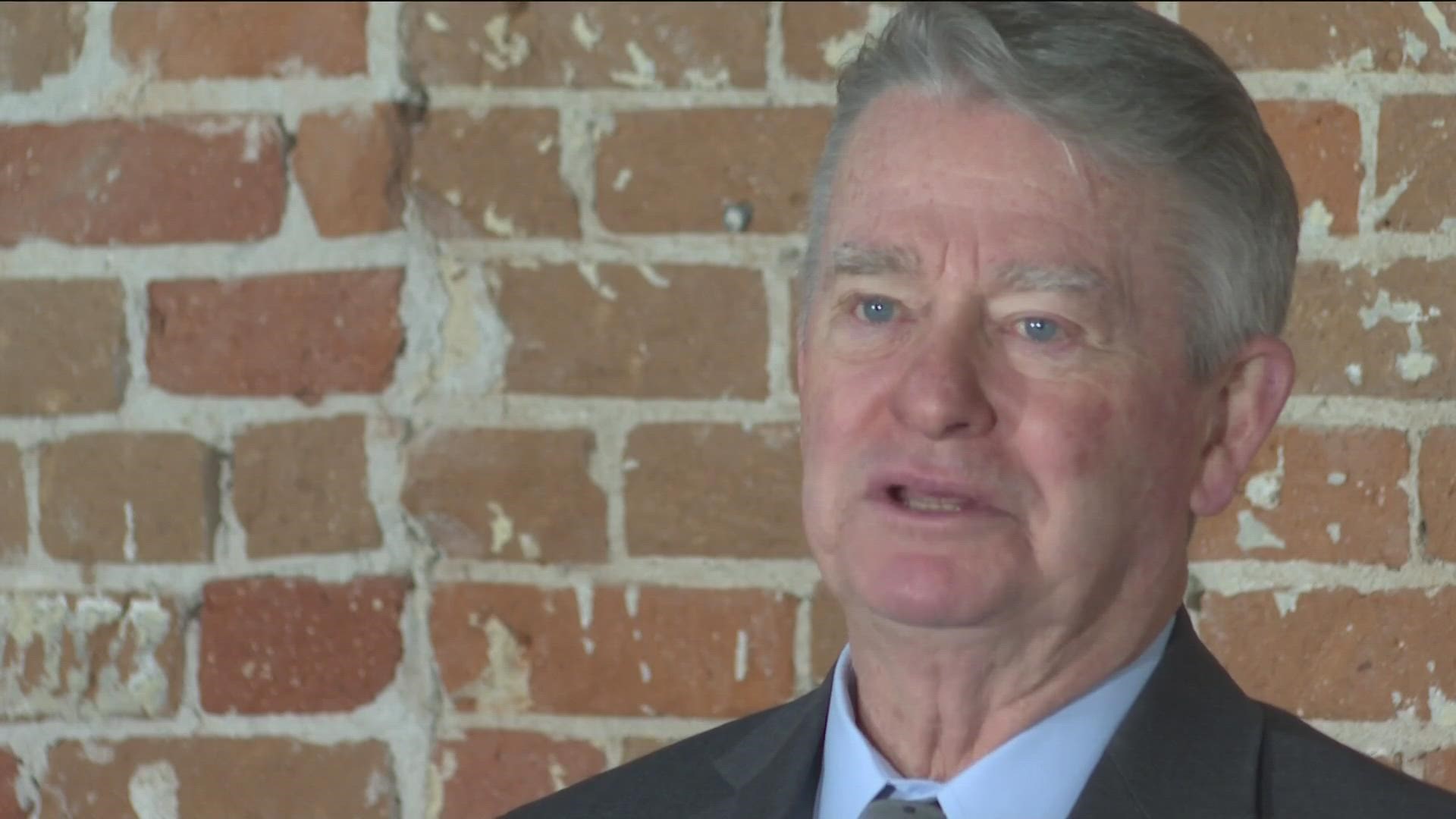BOISE, Idaho — This article originally appeared in the Idaho Press.
About halfway through the 2023 legislative session, Gov. Brad Little noted that he’s had very few bills come across his desk and the majority of his priorities won’t come up until late in the session.
Little, at an Idaho Press Club event Friday morning, discussed what has and hasn’t come up since the Legislature convened in January. His top priorities that he highlighted in his State of the State address, including increasing teacher pay and property tax relief, have not been addressed.
The budget-writing committee is likely to take up education funding bills at the end of the session, he said.
“So much of my initiatives are going to be wrapped up in the very last appropriation process,” Little said.
According to the governor’s bill action report from Feb. 23, Little has signed eight bills into law.
His top priority of his tenure as governor has been education. He did not have specific comments on the proposed educational savings account legislation, which would allow families to use funds for education-related items including private school tuition.
He said he’s seen the report that estimates the ESA cost could spike sharply after the first year.
“I have said consistently that anything that’s significantly detrimental to long-term funding of public schools, I’m going to have an issue with,” he said.
Some of the bills making progress in the Legislature do not address issues that are necessarily occurring in the state, Little said.
A bill to penalize abortion “sanctuary cities” and another bill to ban immigration sanctuary cities have passed the House and Senate respectively, with both sponsors acknowledging that these are happening in surrounding cities and not necessarily in Idaho.
“We are building a moat around Idaho, so these things don’t show up here,” Little said.
The House also passed a resolution to allow for talks to begin with the Oregon Legislature about the potential for “Greater Idaho” by moving the border to include some conservative, eastern Oregon counties.
He said he understands that these issues are important to some people, but he’s not sure these bills will have a significant effect if signed into law.
Another of his priorities is expanding the Idaho Launch program to provide $8,500 to qualifying high school graduates to use at any Idaho university, community college, career technical program or workforce training.
This bill narrowly passed the House on a 36-34 vote on Feb. 6; the bill has been sent to the Senate Commerce and Resources Committee and awaits a hearing. Little said his office is having “robust discussions” with the Senate and is “cautiously optimistic” it will pass.
A major workforce concern is the need for health care workers in the state, Little said.
Opponents of recent legislation that passed — including a bill that would criminalize doctors who perform gender-affirming care that recently passed the House — have said that adding criminal penalties on physicians for administering care could dissuade health care providers from practicing in Idaho.
Little said he’s met with health advocates who expressed similar concerns and said there’s also a larger issue of the disruption to the industry that occurred during the pandemic. A large portion of the workforce has retired and health care facilities have been having to pay traveling nurses, which can cost twice as much, he said.
He also discussed the proposal to repeal Medicaid expansion; the House Health and Welfare Committee introduced a bill to do so earlier this month.
“I’m just concerned about the disruption, and that exacerbates the health care labor shortage,” he said.
In his proposed budget, Little set aside $120 million to go toward property tax relief. Three proposals were introduced on the subject, but none of them has so far had a hearing.
Little said it’s common for tax-related legislation to come up later in the session.
This year the Joint Finance and Appropriations Committee had some votes delayed as leadership worked out a new voting method at the request of House Speaker Mike Moyle. The committee didn’t vote on any supplemental budget requests until last week.
"They’ve had kind of a slow start,” Little said of JFAC, “but they seem to be catching back up.”
The Legislature’s goal day to adjourn sine die is March 24.
This article originally appeared in the Idaho Press, read more on IdahoPress.com.
Watch more Idaho politics:
See all of our latest political coverage in our YouTube playlist:

